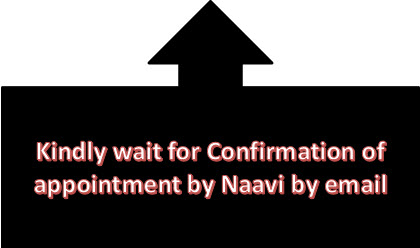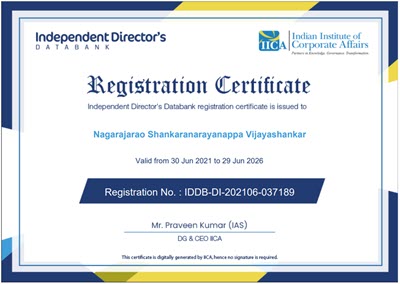During the recent visit of Prime Minister Modi and German Chancellor Angela Merkel to Bengaluru, the Chief Minister Mr Siddaramaiah and more so his party was unhappy that NASSCOM did not invite him for the interaction with the industrialists. It appears that this displeasure is now playing itself out in the form of policy implementations designed to hurt the IT and E Commerce industry in Karnataka.
For some time Congress is taking various steps to discredit the Modi Government and one part of this strategy is to ensure that no cooperation is given to the Center on its economic initiatives. It is possible that the Modi team would have felt that Karnataka politicians could even try to put spokes in the wheels on Modi’s initiatives and decided to keep the State Government at a distance during the Anela Merkel meet.
Some time back Karanataka lost one expansion plan of Infosys and possibly from Tata Motors. Recently flipkart chose Hyderabad as the location to open its biggest warehouse and fulfillment center. (See report here) . In April Amazon India’s had announced that it was putting all future investments in Karnataka on hold due to the state government’s “non-cooperative attitude.” Announcing the setting up of its FC in Telangana, Amazon company said the policy parameters in Karnataka were not in sync with e-commerce industry demands.
It is clear that neighboring Andhra and even Telengana are actively poaching on projects both in IT and non IT and Karnataka is slipping in its development curve. It is only the momentum of the past that is keeping the state afloat.
One of the recent studies by KPMG indicate that E Commerce gives a boost to the SMEs. There are many success stories of SMEs making it a big success with the help of the online stores. (See report here). At such a time when E Commerce needs to be encouraged, the Government has taken yet another step in down grading its status for “Ease of Doing Business” particularly in the E-Commerce area by proposing a “Value Added Tax Deduction At Source”.
It is stated that the Government is proposing a 1 per cent levy on payments by buyers to sellers on e-commerce sites, a move that could encourage other states to follow suit. If put in place, e-commerce companies will have to deduct 1 per cent of payments made to vendors before passing the money on, making goods costlier for consumers.
The state says the levy will help keep tabs on the revenue of sellers, who would be able to claim credit for the tax. The authorities feel this will ensure that disclosures are accurate and companies are paying the right amount of tax.
However one can visualize that this move will introduce more hurdles in the operation of E Commerce in Karnataka and would be construed as a retrograde step which could have been prompted by the recent face off with the NASSCOM.
I hope that wiser counsels in the Government would sense that there is a gradual erosion of the credibility of the Government in business circles which is not good for the economic development in the State. Sooner this is realized and corrective steps taken, better it is for the State.
For this purpose, it is necessary for Mr Siddaramaiah to break himself out of the policy bind dictated by his high command which is interested in taking the Indian economy backwards lest Modi may claim credit. Siddaramaiah should try to emulate Devraj Urs and consider the betterment of the State ahead of other political game plan. It is true that Devraj Urs lost out politically because Indira Gandhi was too strong but the current Congress high command is more dependent on Karnataka and Siddaramaiah may have a good chance to win his way of he shows some courage and conviction to restore the pride of Karnataka in Congress circles by taking an independent political policy stand that is good for the State.
Let’s watch how this war between the Government and the NASSCOM play out..
Related Article:
Karnataka Hold meeting with E Commerce players
Karnataka Loses upto 2000 crores in tax revenue to e-commerce











E-Commerce Taxation Issue:
The e-commerce is a way of doing business only distinct from traditional methods of business.The taxation is not different to the e-commerce than the traditional business.Rather it is more convenient to the Taxing Authorities to collect tax from the E-Commerce Business than the traditional business.The e-commerce turnovers and classification of goods for tax schedules is available on a system software than the traditional business which is a mixed maintenance of accounts containing several issues on which the present day taxing authorities are spending their wholetime.
In the e-commerce the business turnover,which cannot be suppressed or misappropriated and item schedules can be managed very easily and accordingly the actual tax liability can be worked out on the same system software and the tax payments can be made online into the Govt Treasuries instantly.
The present system of the e-commerce is engineered on the Sales and Purchase Agreements with the online sellers and buyers ,which decides the Point of Vat Incidence and collection and further depositing with the respective Governments.Whatever the Agreements which I have gone through,it is reflected as the seller and buyers other than the Online Market Places[ Viz Flipcart,Snap Deal].The e-commerce majors treat their platforms as the Online Market Place only and they have designed their Sale and Purchase Agreements ,which puts the Liability to collect VAT on the online sellers only.The e-commerce majors charges some market fees,facility charges and commission on the sale value of the products traded through their Platform from the online sellers registered with their online platform[ viz flipcart or the snapdeal].
In nut shell the e-commerce present scenario ,which appears to me:
1.The E-commerce companies calls the online sellers and register them .They register both types of dealers registered with the State VAT departments and unregistered dealers also.Having TIN is not mandatory for them in all cases.
2. Under the VAT regimes ,the tax is always collected by the seller only i.e.the seller state viz the Sale Invoice Issuing State.The VAT will be collected by the state issuing invoice and charging VAT thereon.
3.Under the VAT ,s basic principles are uniform throughout the country.The e-commerce revenue is being collected by the selling states only and the consuming states definitely loosing their Tax Revenues.In e-commerce it is a golden chance for those states to attract the e-commerce majors for doing the neat and clean business.The general approach of the E-Commerce majors is to effect supplies from the vicinity of the consumers to bring down the logistics charges.
4.The Value addition chain is depleted by the e-commerce.As all the chain of distribution from the distributor,sub distributor,dealership,wholeseller and the retailer chain is totally absent, and this was the need of the traditional business.The e-commerce do not require this chain mechanism and the ultimate gainer is the end customers.The online business will bring down the market of black money as the e-commerce business is totally through the Banks and other online Pay portals which are easy to track down and regulate than the cash money flow.
5.In the e-commerce only three trading entities are exiting.1. E-commerce Shopping Platforms 2. Online sellers 3.Online Buyers[ mostly are end customers]
6.The Ecommerce major stress upon to shift the onus of VAT Collection and its deposit on the online sellers and to be paid by the end customers only.
7.The e-commerce majors claims to charge Commission of certain percentage of the sale value of the goods sold through their platform and some facility and market charges from the online sellers.If this commission or incidental turnover part is inclusive in the sale price decided by the online sellers,then the liability of the e-commerce majors to pay VAT on the value addition nullifies.
8.The commission or the incidental charges received by the E-commerce majors are the component of the sale value ,which is arrived at by the online sellers after determining all the charges in addition to the purchase price of the said commodity.The sample agreements as being followed by these e-commerce majors shows that the commission is charged @ of certain percentage of the sale price from the online sellers,on which VAT is inclusive by the Online seller.
9.The VAT is paid by the seller on the price,which includes the basic purchase price,his profit margin,incidental charges and commission paid to the E-commerce major or packing or any other logistics charges.The state government ,when received all the due amount of VAT including the component of turnover involved paid to the –Ecommerce majors, no other VAT liability arises on the E-Commerce Major.This is based on the Terms and Conditions of the Sample Agreement signed by a e-commerce major with the Online seller.The sale price when decided at the point of the seller and the goods are directly transferred to the end-customer ,the VAT applies on the sale value.If this sale value is determined after summing up all the prices involved [ basic procurement price of the item +incidental charges incurred by the seller +charges paid to the packing and storage + charges paid to the E-commerce majors as a commission or in any form for making the item marketable and transporation and handling charges]and VAT is paid on this turnover to the respective state government,and the goods are sold to the end customer,then no other VAT liability arises on the E-Commerce Major[ viz. FLIPCART or SNAPDEAL].For the services provided by them ,they may be accountable for any service taxes if their service qualifies that liability,but not VAT.
10.In otherwise ,if the state authorities want to collect tax from the e-commerce majors ,that is restricted to the ‘Component of Value Addition Part Only’.When this value addition part turnover is already suffered VAT by the online seller to online buyer,then there lefts no turnover with the E-Commerce major to pay any value addition VAT.
11.However,the responsibility of the maintenance of the details Accounts of the online sale and purchase,online sellers to the state govt or online access for exercising administrative control over the online sellers,is must if the proper VAT realization is to be achieved by the state governments.
12. Therefore E-commerce is not difficult to tax.Rather is is very convenient to tax provided our taxing authorities steps alongwith the technology .It will prove a boon to the technology updated states and will certainly adv-affect the tax collections of those states who will lag behind in welcoming this e-commerce.
13.The e-commerce is a neat and clean ,and environmental friendly business and makes available the commodities at the doorstep of consumers at very cheap rates.
14.This documents is based on the typical online sale and purchase agreement.For any e-sales business,the cyber contract as mutually signed between the contracting partners in lawful obligation to the Indian Contract Act 1872 as amended on date in India and as per the International treaties on trades and business to which India is party ,are the determining factors to decide the incidence of VAT.
15.There is strong need to familiarize the State Taxation Machinery about the e-taxation and to address their apprehensions about the mis-conceptions.The E-commerce will increase the VAT revenues with ease of doing business for the entire society.
16.The Ecommerce majors should not apprehend about the clarity of Taxation Laws .The law is already explicit.The VAT s basic fundamentals like incidence of taxation ,and definitions and sales concept are uniform throughout the country. The federal structure of VAT and Ecommerce is based on the foundations of the CST Act -1956, the Sales of Goods Act-1930,The Indian Contract Act-1872 and the IT Act-2000/2008 (e-commerce).
[The views expressed are my own ]
G.D.Thakur-Assistant Excise and Taxation Commissioner
Pursuing PG Diploma in Cyber laws from Nalsar Hyderabad
e-mail: aetceiuhp@gmail.com
Mob-08894230005